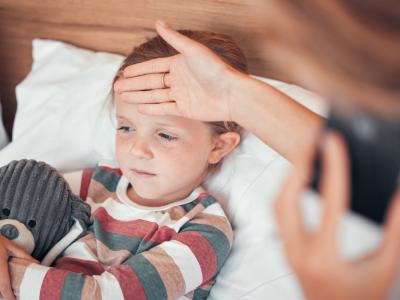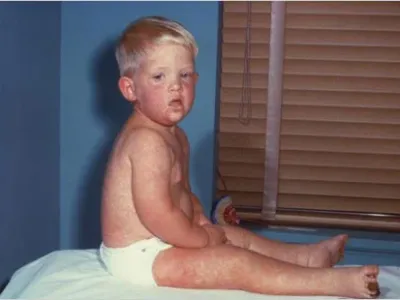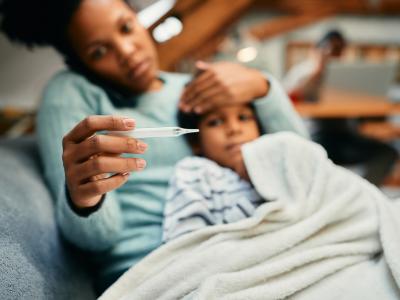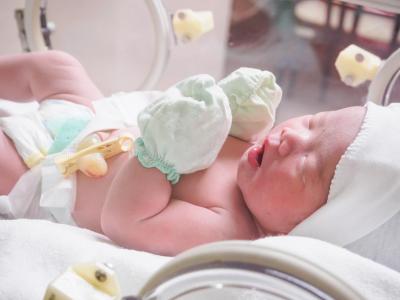Maryland and Delaware report 6 more H3N2v flu cases
Maryland health officials yesterday announced five more presumed variant H3N2 (H3N2v) illnesses in people who had close contact with pigs at county fairs in two different counties, and the Delaware announced a H3N2v illness in a resident of that state who had contact with pigs at a Maryland fair.
The Maryland Department of Health (MDH) said the five latest cases were detected in people who were at fairs in Anne Arundel and Frederick counties. No pigs were reported ill at the Anne Arundel fair, but H3N2 has been confirmed in pigs from the Frederick County fair, and 95 animals are still being held in isolation at the fairgrounds.
The new cases lift Maryland's number of recent H3N2v cases to 20 presumed positive and confirmed cases, the MDH said. Agriculture officials have placed a hold order on three Frederick county farms that had pigs at the fair but brought them back before the virus was detected. They have lifted the hold order for the Charles County fair.
Only one more county fair—Calvert County—is scheduled to take place in Maryland this season, and agriculture authorities last week cancelled the swine exhibits out of an abundance of caution.
In Delaware, the Delaware Division of Public Health (DPH) yesterday announced the state's first H3N2v case, a girl who had close contact with pigs at the Anne Arundel county fair in Maryland. The girl has a mild illness and is recovering.
So far the cases from the two states haven't been added to the Centers for Disease Control and Prevention (CDC) total, but they raise the nation's total to 39 cases, the most since a surge of cases in 2012, which led to 309 illnesses.
Sep 27 MDH press release
Sep 27 MDH updated case count
Aug 28 CDC H3N2v case count
NIH awards $6 million to develop 3-strain Ebola vaccine
The National Institutes of Health (NIH) has awarded researchers at the University of Hawaii, the University of Texas Medical Branch, and three biotech companies $6.3 million to develop a trivalent Ebola vaccine, the University of Hawaii said in a news release yesterday.
University of Hawaii scientist Axel Lehrer, PhD, has already created a heat-stable vaccine that does not require refrigeration, which would be a major benefit in transporting the vaccine to hard-to-reach places. Expanding the vaccine to work against three related Ebola viruses could enhance the protection of healthcare workers and others as soon as outbreaks occur. That is because the first inoculations could occur even before public health experts know which exact type of hemorrhagic fever has struck.
Lehrer believe that, with adequate funding and the necessary regulatory approvals, the heat-stable vaccine could be on the market in 5 to 10 years.
Researchers at the two universities will work with teams from Honolulu-based Hawaii Biotech, Inc.; New Jersey–based Soligenix, Inc.; and Maryland-based Bioqual, Inc.
Sep 27 University of Hawaii news release
Report finds FDA follow-up of food safety violations lacking
Although the US Food and Drug Administration (FDA) is on track to meet the Food Safety Modernization Act (FSMA) inspection mandates initially, the agency is inspecting fewer facilities and has not always taken action when it uncovered significant food safety violations, the Department of Health and Human Services (HHS) Office of Inspector General (OIG) said in a report published yesterday.
The overall number of food facilities that FDA inspected since the passage of FSMA has decreased from a high of about 19,000 in 2011 to just 16,000 in 2015, the report said.
In addition, the FDA did not always take action when it uncovered significant inspection violations—those classified as "Official Action Indicated" (OAI). "When it did take action," OIG investigators wrote, "it commonly relied on facilities to voluntarily correct the violations. Also, it rarely took advantage of the new administrative tools provided by FSMA."
And when the FDA did take action, those steps were not always timely and often did not lead to correction of the violations.
"FDA consistently failed to conduct timely followup inspections to ensure that facilities corrected significant inspection violations," the report stated. For almost half of the significant violations, the agency did not conduct a follow-up inspection within a year, and for 17% of those violations, the FDA did not conduct a follow-up inspection at all.
The OIG recommends the following steps for the FDA, which the FDA agreed with:
- Improve how it handles attempted inspections to ensure better use of resources
- Take appropriate action against all facilities that have significant inspection violations
- Improve the timeliness of its actions
- Conduct timely follow-up inspection
Sep 27 HHS OIG report
New surveillance program allows for large-volume blood testing
The US Army Medical Research Institute of Infectious Diseases (USAMRIID), along with Tasso, Inc, Ceres Nanosciences, and George Mason University, announced plans to develop a new universal surveillance platform for infectious disease outbreaks. The project will cost $11.7 million.
The first phase of the program will begin with $4.25 million from the Defense Threat Reduction Agency (DTRA) to integrate Ceres' Nanotrap particle technology and Tasso's HemoLink device to capture large-volume blood samples in remote environments.
"We have demonstrated already that Nanotrap particles can be used to enrich pathogens like influenza from biological samples and stabilize them for improved downstream analysis," said Ben Lepene, chief technology officer of Ceres Nanosciences in a press release. "We're very excited to work with Tasso, Mason, and USAMRIID to apply that same approach to enrich and stabilize from blood a wide range of host biomarkers along with viral and bacterial pathogens that represent a risk to the U.S. Department of Defense."
The new technologies would help protect healthcare workers in the field from being exposed to pathogens and ensure faster testing of samples for blood-borne pathogens in an outbreak setting.
Sep 28 Ceres press release













